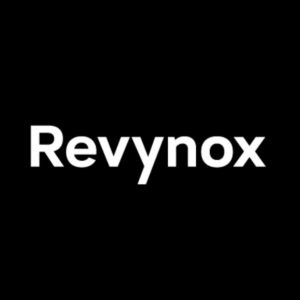When launching a startup, one of the most crucial decisions you’ll make is selecting the right tech stack for your web development project. Your tech stack is the foundation of your product, influencing everything from performance to scalability. Whether you’re based in Montreal or Washington, choosing the right combination of technologies is essential for ensuring your web app is fast, secure, and scalable.
In this post, we’ll walk you through the process of choosing the right tech stack, including important factors to consider, popular technologies to explore, and best practices for your startup’s success.
What is a Tech Stack?

A tech stack refers to the combination of programming languages, frameworks, databases, and tools used to build and run a web application. It essentially forms the infrastructure on which your product operates. A well-chosen tech stack is essential for ensuring your web app is fast, secure, and scalable as your business grows.
For Montreal-based startups and Washington startups, the right tech stack is especially important as you scale quickly in competitive markets. Choosing the right stack early on will help you avoid costly reworks and slowdowns down the road.
Factors to Consider When Choosing Your Tech Stack
While there are countless options available, here are some of the most popular and effective tech stacks for startups in Montreal and Washington today:
1. MERN Stack (MongoDB, Express.js, React, Node.js)
The MERN stack is one of the most popular choices for startups in Montreal and Washington building web applications. It uses JavaScript for both the client-side and server-side code, which simplifies development.
- MongoDB: A NoSQL database that stores data in flexible JSON-like formats.
- Express.js: A minimal and flexible Node.js web application framework for building APIs.
- React: A powerful library for building user interfaces, especially for dynamic and responsive web apps.
- Node.js: A server-side JavaScript runtime that allows you to build fast and scalable applications.
The MERN stack is great for full-stack JavaScript development, making it ideal for startups in Montreal or Washington looking for a fast, dynamic, and scalable solution. If you want to learn more about MERN, check out this comprehensive guide.
2. LAMP Stack (Linux, Apache, MySQL, PHP)
The LAMP stack has been a staple in web development for many years and remains an excellent choice for startups building content-driven websites or web applications in Montreal or Washington.
- Linux: The operating system that hosts your application.
- Apache: A widely-used web server software.
- MySQL: A relational database management system (RDBMS) for storing structured data.
- PHP: A server-side scripting language for web development.
LAMP is an excellent choice for Montreal startups with budget constraints, as it offers open-source solutions with a wide range of tools and support. If your startup is focused on delivering content or has relatively simple database needs, this stack is worth considering.
3. JAMstack (JavaScript, APIs, Markup)
If you’re building a static website or a headless CMS, the JAMstack may be the right choice. The JAMstack focuses on decoupling the front-end from the back-end, providing more flexibility and faster load times, which is perfect for Washington startups targeting performance optimization.
- JavaScript: Front-end code that interacts with APIs and services.
- APIs: Serve dynamic content and data, often through third-party integrations.
- Markup: Pre-rendered HTML pages for better performance.
JAMstack is particularly good for startups with small content-heavy websites or those that don’t require a lot of back-end functionality. Read more about JAMstack in our JAMstack overview.
4. Serverless Architecture
For startups in Montreal or Washington that want to scale quickly without managing infrastructure, serverless computing offers a compelling solution. With serverless, you rely on cloud providers like AWS, Google Cloud, or Azure to handle infrastructure management, allowing you to focus solely on your code.
- Benefits: Cost-effective, scalable, and fast to deploy.
- Challenges: Serverless can be tricky when handling complex systems, so it’s important to weigh the trade-offs.
Serverless is particularly suitable for startups that need to minimize overhead and don’t want to invest too much in managing servers. Explore more about serverless with this introductory guide.
How to Make the Right Choice for Your Startup in Montreal & Washington

When choosing your tech stack, it’s important to align your decision with your startup’s business goals and growth potential, especially in the tech-driven ecosystems of Montreal and Washington. Here are some additional tips to help you choose the best stack:
- Consider the learning curve: If your team is already familiar with certain technologies, prioritize those to save time.
- Think long-term: Choose a stack that can grow with your startup, especially if you expect rapid scaling in Montreal or Washington.
- Leverage community support: Tech stacks with strong developer communities will provide valuable resources and troubleshooting help.
To ensure a seamless development process, you can also outsource your development to experts who specialize in web development for startups in Montreal or Washington. We recommend exploring Revynox’s web development services.
Key Considerations for Startups in Montreal & Washington
When it comes to choosing a tech stack, local factors in Montreal and Washington should play a pivotal role in your decision-making process. Both cities offer thriving startup ecosystems, but they come with unique opportunities and challenges. Here’s what to keep in mind for each location:
1. Access to Talent
Both Montreal and Washington have growing tech communities with highly skilled developers. However, the availability of talent may differ. In Montreal, the city has seen a boom in AI and machine learning experts, making it an excellent hub for startups focused on innovation in those fields. Meanwhile, Washington has a strong emphasis on public sector and security-focused technologies, ideal for startups in compliance-heavy industries like fintech or cybersecurity.
When selecting your tech stack, consider the expertise of local developers and whether you need a specialized skill set. Opt for technologies that align with the strengths of your team or hire talent with the necessary skillset to build the right solution for your startup.
2. Ecosystem and Funding Opportunities
Montreal has seen significant growth in tech innovation, fueled by government grants and investment initiatives. Startups focusing on emerging technologies like AI or blockchain can leverage these initiatives. Meanwhile, Washington has a vibrant startup ecosystem, especially for tech firms focused on healthcare, politics, and education, with easy access to venture capital and government contracts. Your tech stack should be future-proof, not just for scalability, but also to align with local growth trends.
Bring Your Ideas to Life with Stunning Websites.
Let's Build Together!
Future-Proofing Your Tech Stack

As a startup, you’ll want to ensure that your tech stack is scalable and adaptable to changing business needs. The tech landscape evolves quickly, and the stack you choose today could become outdated in the near future. Here’s how to future-proof your tech stack:
1. Cloud Solutions & Microservices
Cloud technologies such as AWS, Google Cloud, and Azure are game-changers for scalability. Instead of relying on traditional hosting solutions, these platforms offer scalable infrastructure that adapts as your startup grows. Additionally, consider adopting a microservices architecture that breaks down your application into smaller, manageable components. This approach allows you to make updates and add new features without overhauling your entire system, ensuring longevity and flexibility for your startup in both Montreal and Washington.
2. Embrace Open-Source Tools
Another strategy for future-proofing your tech stack is to incorporate open-source technologies. Open-source tools not only help cut down development costs but also offer flexibility, allowing you to modify them to meet specific requirements. The open-source community is vast and provides continual updates and support. Embrace open-source libraries and frameworks that are actively maintained and have a strong user base—ensuring you stay ahead of technological trends.
3. Plan for Ongoing Maintenance
Technology is ever-evolving, and your startup’s web application will require regular maintenance to remain efficient and secure. Invest in long-term partnerships with web developers and technical debt management to ensure your web app is continuously improved without costly reworks. This forward-thinking approach will save both time and money in the long run.
Conclusion
Choosing the right tech stack is one of the most important decisions you’ll make for your startup. Whether you opt for MERN, LAMP, JAMstack, or serverless, the right tech stack can ensure that your web application is scalable, efficient, and future-proof—helping your startup thrive in Montreal or Washington.
Take the time to carefully evaluate your options, keep your goals in mind, and consult with web development experts to make an informed decision. The right tech stack will provide a solid foundation for your startup’s growth and success.
At Revynox, we specialize in building scalable and efficient web applications for startups in Montreal and Washington. If you’re ready to get started, contact us today.







